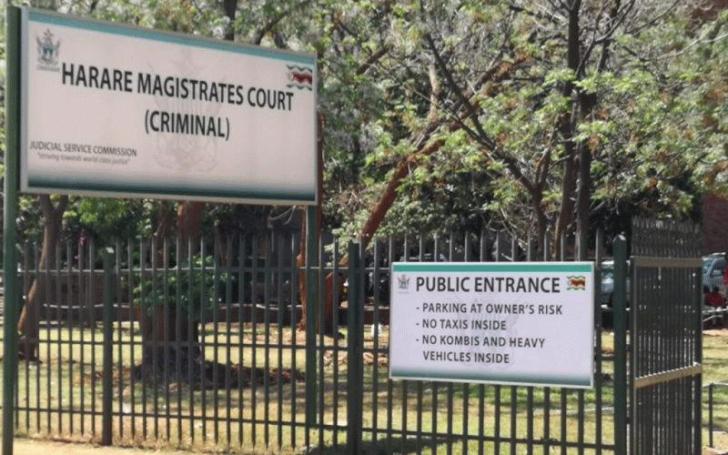News / National
Harare woman acquitted in COS fraud allegations
28 Apr 2025 at 13:02hrs | Views

A Harare magistrate has acquitted Nyasha Mandeya, a woman who had been accused of duping a client out of US$22,000 under the pretext of helping her siblings secure employment in the United Kingdom's care sector. Mandeya was facing allegations that she misrepresented her connections to a UK care company owned by her brother, leading to the belief that she could facilitate employment opportunities for the client's siblings.
Harare Magistrate Patricia Kamwanda delivered her verdict after a full trial, ruling that the State had failed to prove its case against Mandeya. In her judgment, Kamwanda pointed to inconsistencies in the testimonies of the State's witnesses, concluding that the evidence presented was insufficient to support a conviction.
The State's case was built on the claim that Olivia Mugugu had approached Mandeya to secure certificates of sponsorship (COS) for her siblings, who sought employment in the UK care sector. It was alleged that Mandeya promised to process the necessary documents and advised Mugugu that her brother's company was in need of employees.
According to the prosecution, Mandeya demanded US$8,000 per person for processing the COS, and Mugugu allegedly paid a total of US$22,800 for the three individuals.
However, in her ruling, Magistrate Kamwanda emphasized that five witnesses had testified, but the evidence presented, excluding Mugugu's own testimony, was deemed hearsay and inadmissible. The court also found that there was no proof that Mandeya had authored the certificates of sponsorship, which were central to the case.
Mandeya firmly denied the allegations, stating that she had only dealt with visa matters and had never guaranteed job placements. She further testified that Mugugu was aware that there was a third party involved who would ultimately be responsible for the job applications.
Kamwanda also noted that the investigation into Mandeya's defense had not been thorough, specifically highlighting that the investigating officer had not been called to testify. The magistrate argued that if the officer had been presented in court, they could have clarified key aspects of the case, particularly regarding the accused's alibi.
"It is trite at law that where an accused person raises an alibi, it is the duty of the police to investigate it and establish its correctness or otherwise," Kamwanda stated in her judgment. "In the absence of such an establishment, the court ought to accept the explanation of the accused person."
The acquittal underscores the principle that criminal convictions must be supported by evidence beyond reasonable doubt. In this case, the magistrate concluded that the State had failed to meet this burden.
Following the ruling, Mandeya walked free, with the case against her dismissed due to lack of sufficient evidence. This decision has sparked a mixed response from the public, with some expressing relief for Mandeya, while others have raised concerns about the adequacy of the investigation and the handling of the case by the authorities.
Mugugu's claims have yet to be fully resolved, leaving open questions about the fate of her alleged payment and the validity of the COS documents that were never produced in court. The case highlights the complex nature of fraud and the importance of thorough investigations in cases involving financial transactions and misrepresentation.
Harare Magistrate Patricia Kamwanda delivered her verdict after a full trial, ruling that the State had failed to prove its case against Mandeya. In her judgment, Kamwanda pointed to inconsistencies in the testimonies of the State's witnesses, concluding that the evidence presented was insufficient to support a conviction.
The State's case was built on the claim that Olivia Mugugu had approached Mandeya to secure certificates of sponsorship (COS) for her siblings, who sought employment in the UK care sector. It was alleged that Mandeya promised to process the necessary documents and advised Mugugu that her brother's company was in need of employees.
According to the prosecution, Mandeya demanded US$8,000 per person for processing the COS, and Mugugu allegedly paid a total of US$22,800 for the three individuals.
However, in her ruling, Magistrate Kamwanda emphasized that five witnesses had testified, but the evidence presented, excluding Mugugu's own testimony, was deemed hearsay and inadmissible. The court also found that there was no proof that Mandeya had authored the certificates of sponsorship, which were central to the case.
Kamwanda also noted that the investigation into Mandeya's defense had not been thorough, specifically highlighting that the investigating officer had not been called to testify. The magistrate argued that if the officer had been presented in court, they could have clarified key aspects of the case, particularly regarding the accused's alibi.
"It is trite at law that where an accused person raises an alibi, it is the duty of the police to investigate it and establish its correctness or otherwise," Kamwanda stated in her judgment. "In the absence of such an establishment, the court ought to accept the explanation of the accused person."
The acquittal underscores the principle that criminal convictions must be supported by evidence beyond reasonable doubt. In this case, the magistrate concluded that the State had failed to meet this burden.
Following the ruling, Mandeya walked free, with the case against her dismissed due to lack of sufficient evidence. This decision has sparked a mixed response from the public, with some expressing relief for Mandeya, while others have raised concerns about the adequacy of the investigation and the handling of the case by the authorities.
Mugugu's claims have yet to be fully resolved, leaving open questions about the fate of her alleged payment and the validity of the COS documents that were never produced in court. The case highlights the complex nature of fraud and the importance of thorough investigations in cases involving financial transactions and misrepresentation.
Source - newsday




































